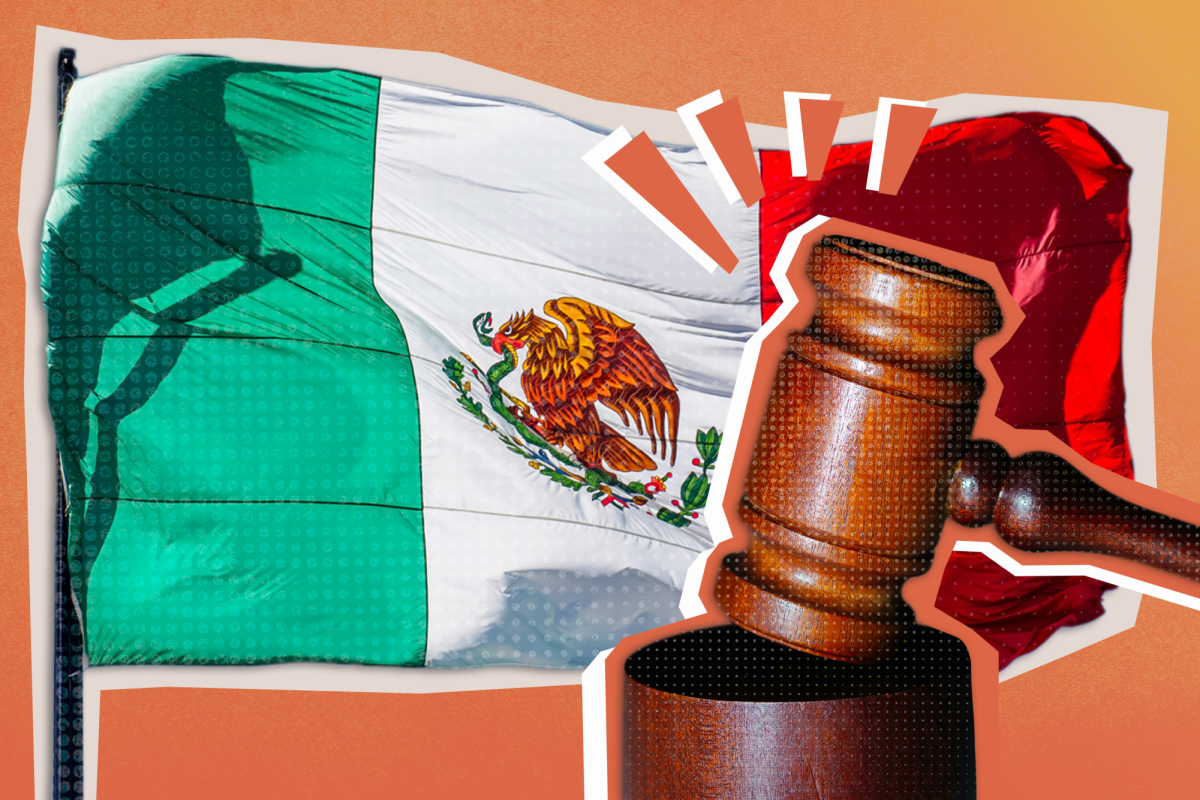Reformation to the Mexican constitution passed within the Senate on Sept. 11, after contentious opposition, pushing forward changes to make judicial positions an elected role.
The reform, which was signed into law on Sept. 15, covers numerous issues, including the process of selection for judges. While the position is currently an appointed one, the reformation, proposed by former President Obrador and the Morena party, would require elections to be held for judicial positions.
Newly-elected President Claudia Sheinbaum posted about the reform on the social platform X, saying, “The reform of the judiciary means greater independence, freedom, sovereignty and democracy in our country.”
Under the new process, potential justices would be required to submit an application to be considered for the role. The change mandates Senate oversight to evaluate which judicial applicants would make the ballot. Justices would then be determined by a majority vote in an election. The changes are set to take effect by 2025.
James Samstad, a lecturer of political science at San Diego State University, said that the judicial system has been a known issue within the Mexican government, but the increasing boldness of drug cartels has demanded action. He believes the proposed changes are not a perfect solution to the issues around crime in the country, but are an important first step toward change.
“At some point, they have to take [the drug problem] off the back burner and deal with it,” Samstad said. “And this is one of the ways to do that – not as a solution, but as a necessary but not sufficient condition. You need to start with a more honest judiciary.”
The Morena party, which proposed the reform, currently holds a supermajority in the lower chamber, allowing the proposition to pass with little resistance. However, to pass within the Senate, Obrador and the Morena party needed support from the opposition, which they found in one National Action Party (PAN) senator who had previously spoken out against the change. He was removed from PAN the following day.
Critics of the constitutional reform highlight the substantial amount of power it grants to the Senate over which candidates make the ballot.
“Morena had a supermajority,” Samstad said. “In a sense, if they had gone with the old process, they could have just fired everybody and reappointed their people directly. They could have did that, they have chosen not to.”
He believes that the party does intend to make meaningful changes to work toward a more honest judicial system. He said that by making the position appointed, the government is providing more power to the people, even if the reformation is not perfect.
Former President Obrador’s constitutional reformations faced additional criticism for the expansion of the crimes that would qualify for pretrial detention. These crimes would include drug crimes, specifically citing Fentanyl, as well as tax fraud and other tax-related crimes.
Mandatory pretrial detention has been a part of the Mexican constitution since 2008 and authorizes the detention of individuals for up to 80 days without any charges being presented against them.
The Inter-American Court of Human Rights weighed a case related to this rule, determining that mandatory pretrial detention was a human rights violation. Despite this ruling, Obrador’s revisions seek to expand this practice.
Shortly after the IACHR’s ruling, Mexico’s Minister of the Interior, Adán Augusto López said, “It is a disservice for the Inter-American Court to place itself above the Constitution and disrespect the Mexican State. There can be no power above the Mexican State..”.
Expansion of these detention practices has continued the criticism surrounding the Morena party’s revisions.
Representative Paulina Rubio Fernandez of the PAN party said that the reformation to the parameters of pretrial detention policies, “violates human rights and generates perverse effects on prosecutor’s offices.”
And yet, the policies have met mixed perspectives.
Mexican deputy and Ecologist Green Party member Armando Antonio Gomez Betancourt has supported the expansion of the policy, saying that the reform offers greater legal tools working to reduce drug and tax crimes. He said the additional severity of the consequences of these crimes is a comprehensive approach to reducing the prevalence of such violations.
With SDSU and San Diego County so close to Mexico, it is no surprise that the community is closely tied to the changes and policies implemented across the border, with Hispanic individuals making up nearly 34% of the San Diego population.
SDSU journalism and pre-law student Julianna Deras volunteered with the South Bay Superior Court at a restraining order clinic, serving many people closely tied to Mexico and specifically the Tijuana community.
“A lot of the people that come to the clinic seeking assistance don’t realize…that the court isn’t going to grant [them] protection,” Deras said. “Although TJ is minutes away, it’s a completely different country with completely different laws.”
She said that the strength of the United State’s justice system is the principle that a person is innocent until proven guilty. According to many of Obrador’s critics, Mexico’s reform to further the authorization of pretrial detention works in opposition to this principle held in the United States.
Newly-elected President Claudia Shienbaum is also a member of the Morena party and spoke out in support of former President Obrador’s reformation proposals. She was inaugurated into office on Oct. 1 and has promised to continue to address corruption within Mexico’s justice system in the future.






